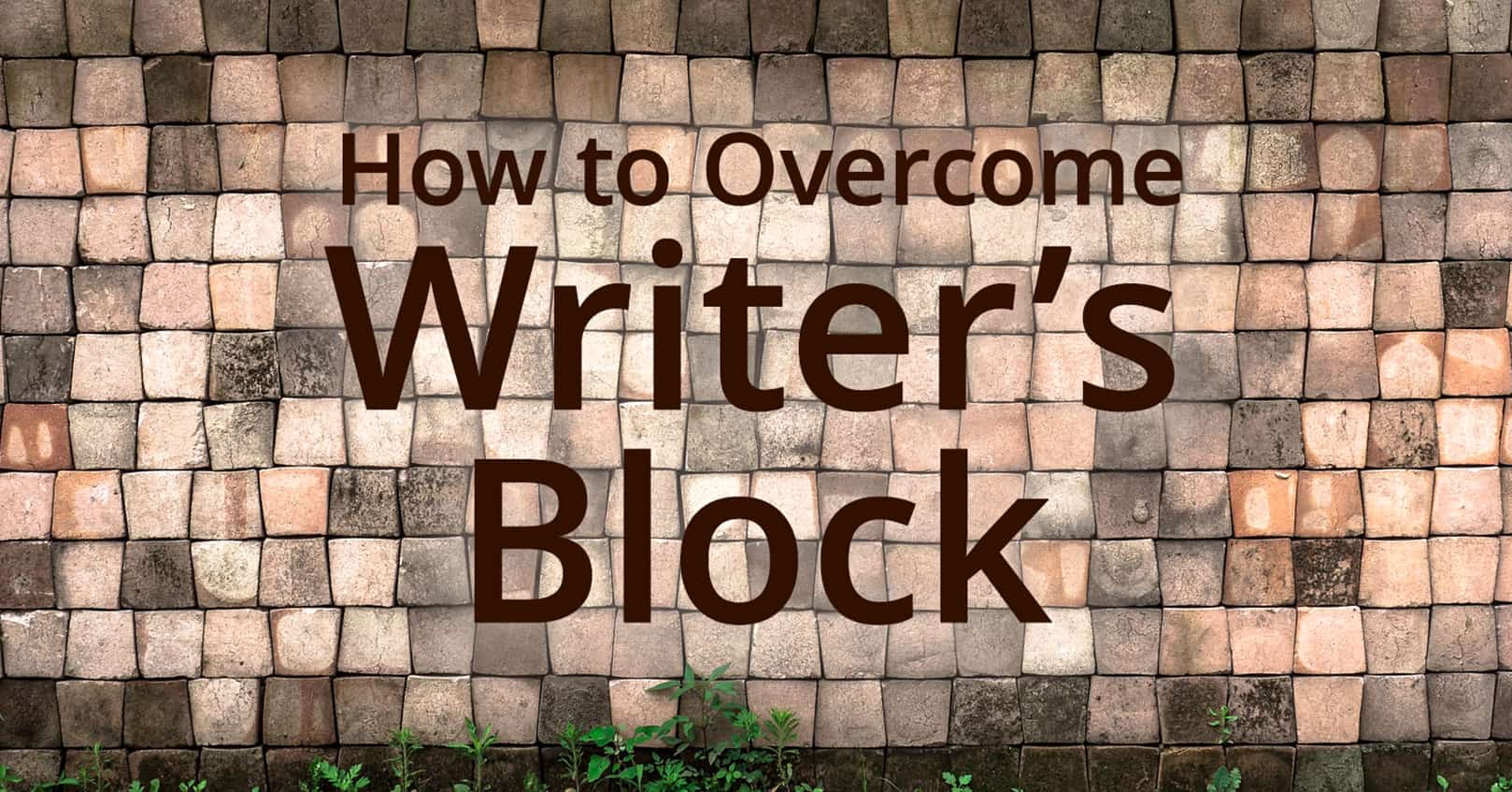
There should be a more inspired solution to overcome writer’s block than just sitting at a desk, banging your head against a keyboard. Yet we writers fear that when we’re blocked, if we don’t at least sit-down and force the writing in the moment, it may never come at all. If you get up and walk away from that desk—or wherever it is you write—you are abandoning your writing, your child, and the little tyke will never forgive you as long as you live.
What we most need to believe instead is this: writer’s block is temporary.
There is no one solution or even necessarily an immediate solution. But we’ll talk about some ways you can bring that spark back.
Methods of Writing
There are two common methods of writing when you’re struggling to overcome writer’s block, the first not very ideal and the second being more ideal.
Brute Forcing It
Let’s assume you have a project due immediately and you don’t have time to pace yourself and get in touch with your source motivation. Writer’s block has caused you to procrastinate so long that you now have to force yourself to be creative; otherwise, there goes that deadline and there goes payday. Brute forcing may be your only option, but this is not the ideal way to overcome writer’s block.
What this method entails is getting your butt back in that chair and beating on the keyboard until words related to your subject finally fall in some order. When you’re in a rush you often don’t even care if they’re good words, or if your story, blog post, or news article even reads well. You have to get the project done and so you do. What would be great in this situation is if you could spark creativity, and sometimes you do, but more likely the writing is really crappy at first when you’re forcing the muse.
In the long run? Even if you can brute force your way to good writing, this method isn’t the healthy road to consistent high-quality writing. When you put yourself under the gun (under the deadline) you’ve actually already failed to do what you could have written, created, and edited, at an earlier date. When brute forcing your writing, you’re writing often isn’t any good until the third draft.
Pacing Yourself
All effective writers had periods where they were, at first, ineffective. These great writers often had periods where they brute forced it, and they continued to rush their writing day after day to meet some deadline before they realized that the best way for quality writing is to breathe, slow down, sometimes even push a deadline back, and pace the writing until the finish line. Of course, this is easier said than done; it will take work.
First, you’ll need to recommit yourself to the writing. After you’ve hit that rock bottom of writer’s block—or sometimes even that plateau where your words and story feel bland and unchanging—you need to pick yourself back up and recommit to the writing. Recommitting isn’t just a one-time thing, it’s something you’ll have to do all the time because there are typically highs and lows through any career. Recommit and then set yourself pacing goals: step-by-step daily or weekly writing milestones to hit. These might be:
- Write one chapter today.
- Write four pages this week.
- Write 250 words every morning.
- Do research for a setting this week; write a scene in that setting next week.
- Read for an hour; write for an hour.
Set yourself an achievable goal—achievable meaning you start small right now and maybe extend the goal’s range later—then day by day work to achieve that goal. This is pacing, and you’ll be surprised how much extra time you have when your plan makes time for consistent writing.
Pacing yourself is a good start to overcoming writer’s block. If you need a little more to get you going, here are even more ideas for you to try.
Overcome Writer’s Block through Recapturing Your Creativity
Your main problem may be that you’ve lost the initial drive and interest in a subject, person, or idea that first led you to your current project. No amount of forcing, pacing, or recommitting is going to invigorate the old thrill for you without first forgetting about your project for a while and inviting the fun back into your writing. Here are some interesting suggestions and ideas to help you find your drive again.
Go back to where it all started.
Take a holiday from your writing and go back to the place, people, event, city, book you were reading, or whatever it was that first got you writing your current project. Try recapturing why you first wanted or needed to write about this. If you can’t recapture, then instead capture something new and try looking at your muse from a different angle for a unique new story twist or idea.
Take a vacation somewhere inspirational.
Sometimes the best thing for your writing is to find a change of headspace, not necessarily to think about your story and where it needs to go, but just to relax and enjoy the little things.
Don’t blame the rituals.
Some writers believe things like, “I have to have three spoons of sugar in a hot cup of tea before I can start writing,” and unfortunately, these rituals give them permission to “not be able to write” when they haven’t done them for the day. Missing a ritual and not being able to write is often just us blaming our insecurities or laziness on something else so we don’t feel bad about not writing. If you really wanted to write, no ritual would stop you.
Realize that your block is not special.
Many writers make the unfortunate mistake of thinking their writer’s block is uniquely different and more complicated than other writers’, so regular methods will not work for them. This is a huge mistake! Writer’s block is very much a normal part of the writing process, and the biggest cure to writer’s block is getting out of your own head and allowing yourself to write again. You don’t need a special voodoo dance to cure your writer’s block, conventional methods will work if you let them.
What do you do to overcome writer’s block? We’d love to hear in the comments below!















Comments